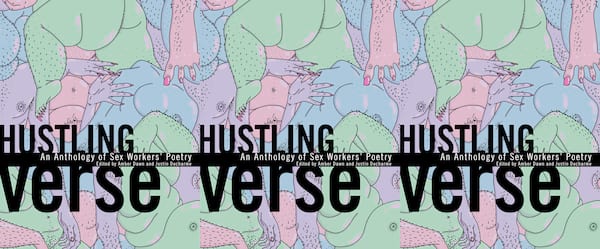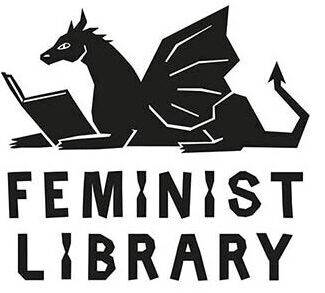On anthologies, power and the canon. A review of Hustling Verse: An Anthology of Sex Workers Poetry

Anthologies are a curious thing.
On the one hand, they can be fairly passive objects. Coffee table books to adorn the home, sitting dormant, waiting hopefully to be picked up by visitors. Or neutral-coloured, heavy tomes that you might buy for university for too much money and sell again later for too little.
But then again, looking at the humble anthology in a slightly different light and it becomes something else. Something that embodies sincere and great power, politically charged with a history of exclusion and hierarchy and privilege. For centuries, the texts that have been tabulated in anthologies have been chosen by the privileged few. The stalwart governors of the old, pervasive power structures, stood at the helm of education systems and declaring which art should be studied, and who shall be remembered. If what gets anthologised is what gets immortalised, what then happens when all that is made immortal in our world is inherently biased toward the identities that hold power and exclusionary to those without?
But the rules are beginning to be broken. Slowly, slowly, anthologies are starting to assume a new shape. One that disturbs the privileged white, cis, hetero, patriarchal, western dominated canon. One that questions the monolithic order of things and calls out for art by the identities who have previously been denied access to these spaces. Not only does this radically change how we value art of the past and future, but perhaps more importantly so, how we value the artists themselves, and the communities they belong to. To that I’d say, it’s about damn time.
For this reason, Hustling Verse isn’t simply an anthology of poetry with a beautiful cover (although it is indeed beautiful), but an integral part of a wider movement toward the liberation of art created by marginalised groups that have been persistently erased by prejudice. The literary aspirations of sex workers, both of the past and the present have been so strenuously undermined and devalued throughout history, that we have as a consequence lost a great deal of profound and important work. To take it back to the Renaissance, for example, when asked to name a few important artists of that time – we find ourselves offering up Da Vinci, Michaelangelo, Boccaccio and Petrarch, straight from the top of our heads. Yet few of us know the names Gaspara Stampa and Veronica Franco. Both were revered by many in their century. Both have become almost unknown in ours. And both of whom were sex workers. It is no coincidence or sleight-of-hand that caused these women to be written out of history, but crude and determined prejudice caused by those with power and the final say on what we keep and what we lose.
With thanks to Amber Dawn and Justin Ducharme’s curatorial efforts, Hustling Verse is doing what anthologies should have been doing a long time ago, and canonises the work of sixty phenomenal poets, all of whom have either worked or are currently engaging in sex work. With standouts including Naomi Sayers’ ‘A Memory I Need to Talk About’, Arabelle Raphael’s ‘Gospel’ and Raven Slander’s ‘West End Sex Workers Memorial’, each poem is as lucid and tactile and as eager to imprint on the mind as only the truest art has the ability to do.
I thank these poets.
These poets who cleave open the bolted shutters to worlds so few have realistic understandings of nor fair thoughts toward. Worlds that are as dark as they are light, revealing the shadows of human nature, desire, capitalism and power. Readers of this anthology are given a cherished opportunity to engage with aspects of human life that are largely concealed from the rest of the world, and with that – largely shunned. That is precisely what art should do. Should it not?
Review written by Molly Hills
